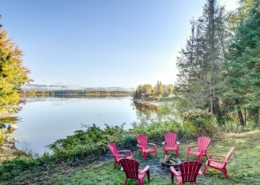Berlin, Germany, has faced significant legal issues related to short-term rentals, including those listed on platforms like Airbnb. The city has been grappling with regulating the impact of short-term rentals on its housing market and community.
In 2014, Berlin introduced strict regulations to curb the growth of short-term rentals. The regulations required hosts to obtain a permit from the city to legally rent out their properties on a short-term basis. However, in 2016, the city enacted a blanket ban on most forms of short-term rentals in residential areas, with only a few exceptions, such as renting out individual rooms while the host is present.
The ban on short-term rentals was implemented to address concerns about housing shortages and rising rental prices, as well as to preserve the character of residential neighborhoods. The city argued that short-term rentals were contributing to the reduction of available long-term rental units and the displacement of residents.
Following the ban, there have been significant legal challenges and debates about its effectiveness and impact on tourism and the economy. Some hosts and platforms have contested the regulations, while others have adapted their offerings to comply with the law.
Despite the ban, short-term rental listings have continued to exist on platforms like Airbnb and others. The city has taken measures to enforce the regulations, including imposing fines on hosts and platforms found to be in violation.
It is important for hosts and guests to be aware of the legal restrictions on short-term rentals in Berlin and comply with the regulations to avoid potential legal consequences. However, the situation may have evolved since my last update, so it’s essential to verify the most up-to-date information from the relevant authorities or consult legal professionals for the current status of short-term rental regulations in Berlin. As the city continues to address the challenges posed by short-term rentals, hosts and guests should remain informed and act responsibly to ensure compliance with the applicable laws.
Read also instructions on initiating an Airbnb business in Berlin.
Airbnb hosts can rent out entire properties, private or shared rooms.
- 7 011 – listings in total
- 4 988 (71%) – entire properties
- 1 893 (27%) – private rooms
- 130 (2%) – shared rooms.
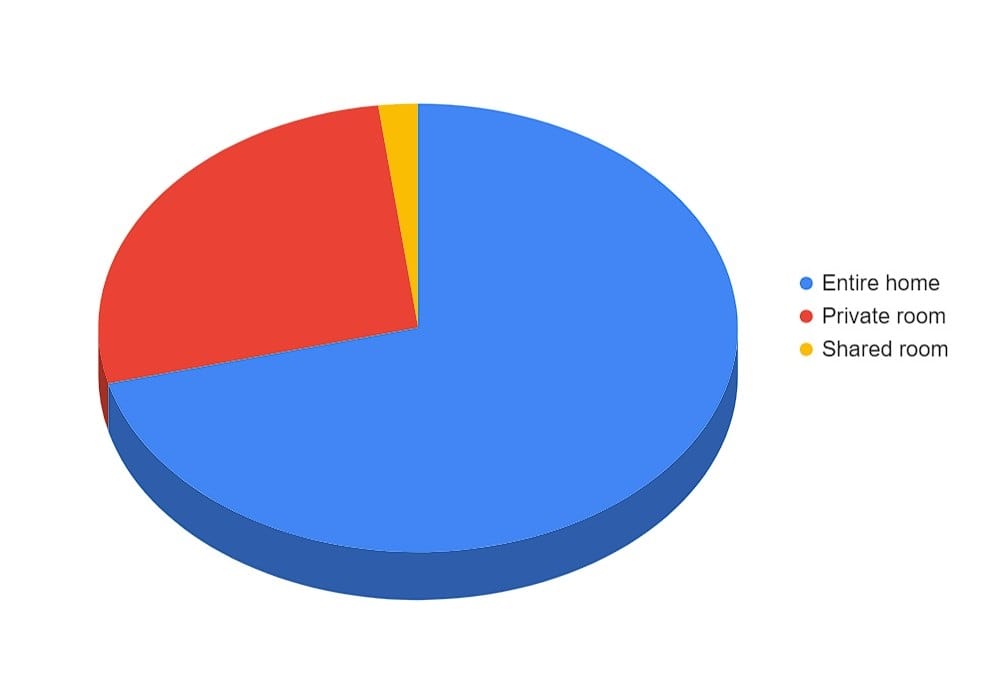
4 988 (71%) – entire properties
1 893 (27%) – private rooms
130 (2%) – shared rooms
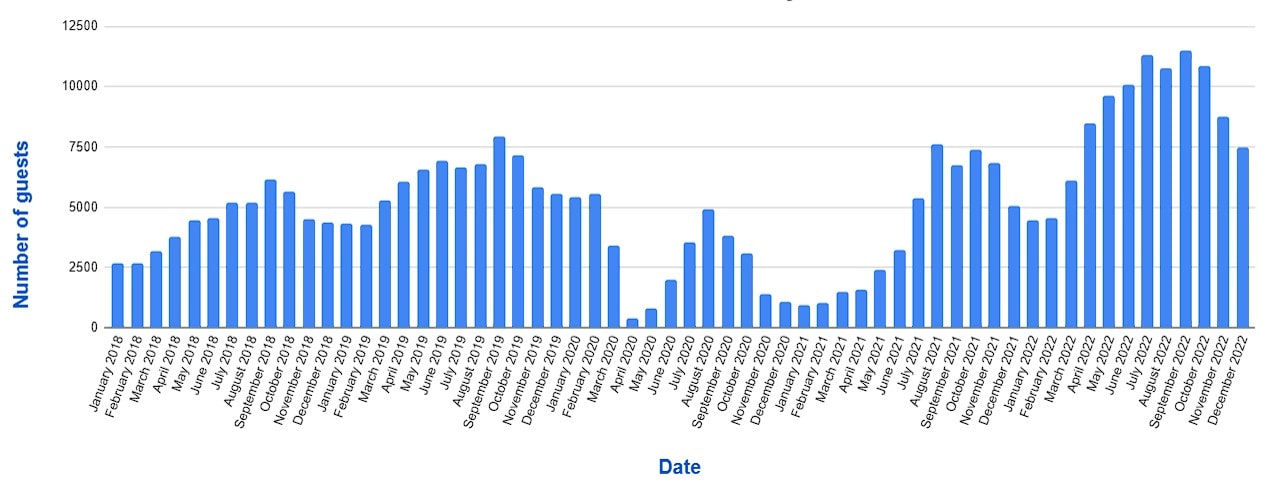
Airbnb guests may leave a review after their stay, and these can be used to estimate Airbnb guests activity. However not all guests leave a review, so the actual activity could be higher.
- $136 – average daily rate
- 90% – occupancy rate
- $2 302 – revenue.
When you assess the Airbnb market in Montreal, you’ll notice that there are some hosts who have multiple listings and some that have single listings, just like everywhere else in the world. Also, owners can list their property on 1 or more platforms.
- 86% – listed on Airbnb
- 7% – listed on Vrbo
- 7% – listed on both.
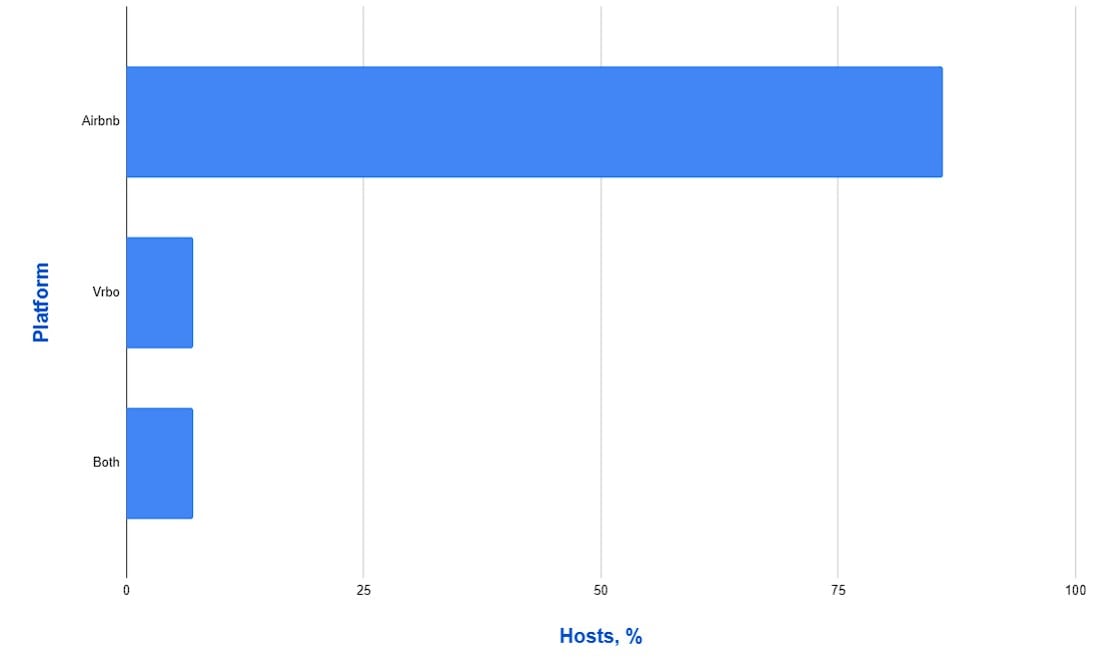
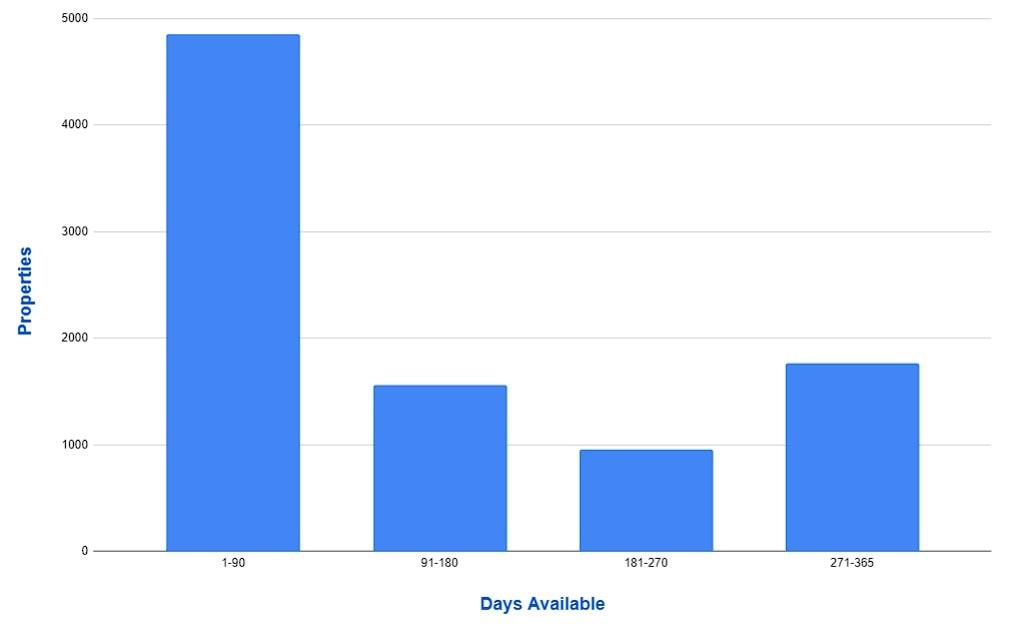
Airbnb hosts have full freedom when it comes to selecting how available their property or rooms are. For instance, by utilizing the calendar tool, a host can set their property to be available for just one week in a year. Alternatively, another example is a host setting their rooms to be available for 11-months out of the 12.
- Available
- 1-90
- 91-180
- 181-270
- 271-365
- Properties
- 4855
- 1559
- 958
- 1762
- %
- 53
- 17
- 10
- 19




